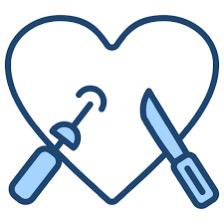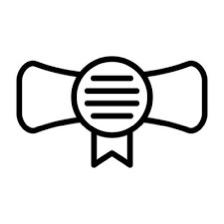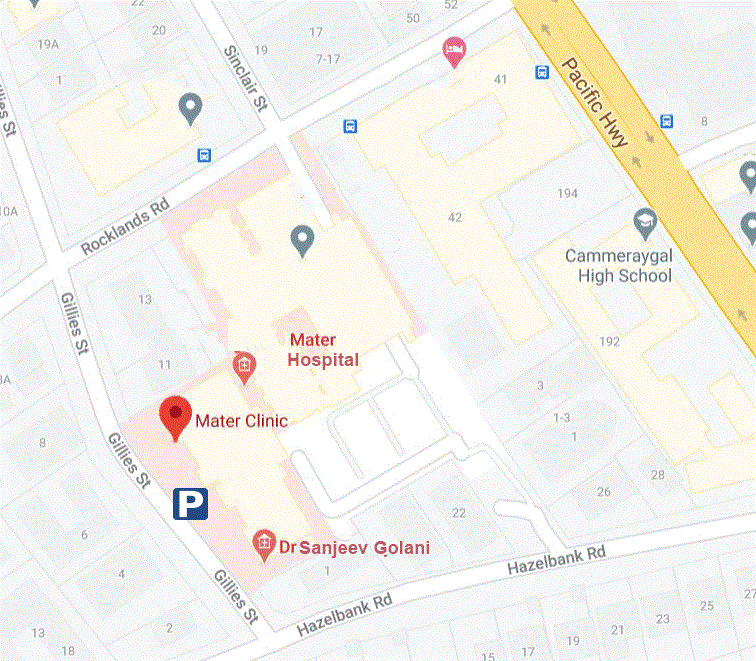Anal Fissures, Anal Abscess and Anal Fistulas
Anal fissures, Anal Abscesses and Anal fistulas are common anorectal conditions that can cause discomfort and affect daily life. Below is some detailed information about the conditions:
Anal Fissures
What are Anal Fissures?
An anal fissure is a tiny split or tear in the lower part of the anal canal. Imagine it like a small cut near the opening of your back passage. Unfortunately, these fissures don't heal easily and can become quite painful. They're often linked to muscle spasms in the anal sphincter (the muscle that controls bowel movements).

If you ever experience discomfort or notice blood when passing stools, it's essential to seek medical advice. Early intervention can help manage anal fissures effectively. It is important, to note this is not an unsual condition and there are treatment options to find relief from pain.
Causes of an Anal Fissure
Most often, they occur due to trauma or injury. Often the reason is due to passing a hard, constipated stool. But they can also happen after bouts of diarrhea or during childbirth.
Symptoms of Anal Fissures
- Pain: The primary symptom of an anal fissure is pain. It occurs during bowel movements and can last for varying durations afterward. The pain results from the tender fissure itself and intense spasms of the internal anal sphincter muscle.
- Bleeding: When an anal fissure first develops, bleeding is common. You might notice bright red blood during or after passing stools.
- Skin Tags: Occasionally, a swollen skin tag or lump forms at the external end of the fissure.
Management of Anal Fissures
Please see your GP about the management of your Anal Fissure. A further referral to Dr Golani may be required to help with treatment of the fissure.
- Spontaneous Healing: Most minor fissures heal on their own, and even deeper, long-standing fissures can improve with conservative measures.
- Soft Stools: Ensure soft stools by:
- High Dietary Fiber: Include plenty of fiber-rich foods in your diet.
- Stay Hydrated: Drink enough fluids.
- Anal Hygiene: Keep the area clean to promote healing.
- Warm Baths: Soak in warm baths frequently.
- Recurrence: Be aware that fissures may come back months or even years later if constipation persists.
Surgical Treatment for Anal Fissures
A consultation with Dr Golani will go into detail for your surgical treatment of Anal Fissures. Dependant on your circumstances, treatment options may include:
- Day Procedure: Treating an anal fissure usually involves a simple day procedure with minimal hospital stay.
- Gold Standard: The most common treatment is a procedure called sphincterotomy.
- Botox: Injections of Botox into the anal muscle. Botox temporarily relaxes the sphincter, allowing the fissure to heal over 8-12 weeks.
For further information or to discuss treatment options, please contact our team for a consultation with Dr Golani. A GP referral will be required prior to your consultation.
What is an Anal Abscess?
An abscess is a pocket of pus that forms in a specific area of the body. Specifically, an anal abscess develops in the tissues around the anus.

Causes of an Anal Abscess
Understanding the causes of an anal abscess :
- Glands Around the Anus: There are small glands inside the anus.
- Infection Risk: Bacteria can get trapped in these glands, leading to an infection.
- Abscess Formation: An abscess forms due to this infection. It can spread to different areas around the anal canal, involving the anal sphincter muscle and nearby structures.
- Enlargement and Drainage: The abscess may grow and eventually break through the skin or require surgical drainage.
Symptoms of an Anal Abscess
As an abscess fills with pus, the pressure inside it rises. This leads to persistent throbbing pain until the pus eventually drains out. Additional symptoms may include fever and sweating. If you experience these signs, see your GP immediately.
Treatment of an Anal Abscess
Draining an Abscess- Process: Wider drainage of the abscess may be necessary. This typically requires general anaesthesia.
- Hospital Admission: For all procedures, hospital admission is needed.
- Antibiotics: While antibiotics help control infection, they alone won't cure an abscess.
- Drainage Tubes: Some patients may need a drainage tube for a period of time.
For further information or to discuss treatment options, please contact our team for a consultation with Dr Golani. A GP referral will be required prior to your consultation.
What is an Anal Fistula?
An anal fistula is an abnormal tunnel connecting the inner lining of the anus to the skin outside the anus. This can develop in a number of ways:
- Spontaneous Drainage: Sometimes, a fistula forms after an abscess spontaneously drains.
- Identified During Abscess Surgery: It can also be discovered during surgical drainage of an abscess.
- Post-Abscess Surgery: A fistula may occur after surgical drainage of an abscess.
- Pus Discharge: The fistula may cause constant or intermittent pus discharge through an external opening on the skin.
- Temporary Healing: Occasionally, the external opening may heal temporarily.

Treatment of an Anal Fistula
To cure a fistula, surgery is usually necessary. Dr Golani would locate and exposes the path between the anus and the skin. There are various Treatment Options:- Fistulotomy:
- Opens the entire track to the skin's surface.
- Allows the wound to heal gradually.
- Involves dividing some sphincter muscle.
- Commonly used treatment.
- Seton Placement:
- A flexible loop material placed along the track.
- Maintains drainage for a specific period.
Why Choose Dr. Golani?
 Unparalleled Surgical Expertise
Unparalleled Surgical Expertise
- Expertise You Can Trust: With more than two decades of experience, Dr. Golani has consulted and operated on thousands of patients. His extensive knowledge ensures accurate diagnoses, tailored treatment recommendations, and smoother recovery processes
 Advanced Minimally Invasive Surgical Skills
Advanced Minimally Invasive Surgical Skills
- Laparoscopic Surgery Specialist: Focusing on minimally invasive procedures, Dr Golani uses the latest laparoscopic techniques to reduce pain, speed recovery, and minimise scarring compared to conventional open surgery.
 Proven Surgical Excellence
Proven Surgical Excellence
- Outstanding Clinical Outcomes: Thousands of successful procedures and published clinical research underline Dr Golani's precision and commitment to high surgical standards.
 Accreditation & Cutting-Edge
Accreditation & Cutting-Edge
- Elite Credentials: A certified member of the Royal Australasian College of Surgeons (RACS), the Colorectal Surgical Society of Australia and New Zealand (CSSANZ) and the Gastroenterological Society of Australia (GESA), Dr Golani remains current with evidence-based advancements, ensuring you receive optimal care.
 Personalised Patient Care
Personalised Patient Care
- Tailored Treatment Plans: Every patient receives a customised treatment plan designed to address their unique health needs with maximum precision.
 Dedicated Support Team
Dedicated Support Team
- Continuous Assistance: Dr. Golani's highly responsive team is available to provide expert guidance, answer your questions, and offer ongoing support throughout your treatment journey.
If you are seeking comprehensive colorectal, general, or minimally invasive laparoscopic surgery in Sydney, schedule your consultation with Dr Golani today to discuss your treatment options.
Your Consultation
Dr. Golani will provide further discussion regarding the specifics of your diagnosis during your consultation. Additionally, you will have the opportunity to select the hospital for your procedure and potentially set the date for your procedure.
The best surgical hospitals in Sydney are available for your surgery:
- Sydney Adventist Hospital, Wahroonga
- The Mater Hospital, North Sydney
- Norwest Private Hospital, Bella Vista
- Hornsby Ku-ring-gai Hospital, Hornsby
To schedule a consultation with Dr. Golani, please contact our team for a consultation with Dr Golani. We have appointments available at three convenient locations across Sydney:
 |
Please note that a GP referral will be required prior to your consultation.
Contact Us
To make an initial consultation booking, please contact our office on 02 8599 9819.
If you have a question, please Email usHornsby Clinic Address:
Madison BuildingSuite 7, 25-29 Hunter St,
Hornsby NSW 2077
Phone: (02) 8599 9819
Email: info@drgolani.com.au
Fax:(02) 9012 0976
HealthLink: drgolani

Our Horsnby clinic is located conviniently next to Hornsby Westfield & Hornsby Station
Click here for MAP LOCATION
Mater Clinic Address:
Suite 1.13, Level 1 Mater ClinicMater Hospital
3-9 Gillies St, North Sydney 2060
Phone: (02) 8599 9819
Email: info@drgolani.com.au
Fax:(02) 9012 0976
HealthLink: drgolani

Our Mater clinic is located within Mater Hospital. Parking and Entry (convenient Pickup and Drop Zone) is via 5 Gillies St, Wollstonecraft.
Click here for MAP LOCATION
Norwest Clinic Address:
Suite 301C, Level 3Q Central Building
10 Norbrik Dr, Bella Vista NSW 2153
Phone: (02) 8599 9819
Email: info@drgolani.com.au
Fax:(02) 9012 0976
HealthLink: drgolani

Our Norwest - Bella Vista clinic is located within Q Central Building - opposite Norwest Private Hospital. Free Limited Parking is available within the Q Central Building. There is a drop off zone outside of the building. Paid parking is available opposite at Norwest Private Hospital. Additionally there is parking at Woolworths Norwest Circa (5 minutes walk from the Clinic)
Click here for MAP LOCATION
What do I bring to my appointment?
- Referral letter
- X-Rays/Scans
- Test results relating to referral
- Health fund card
- Medicare card
Procedures
Dr. Golani offers an extensive range of General and Colorectal Surgical procedures, expertly addressing a diverse array of symptoms, conditions, and diseases. His patient-focused approach ensures personalised care tailored to individual needs.
Bowel Cancer
Dr. Golani delivers exceptional outcomes in laparoscopic resections for both bowel and rectal cancers, combining expertise with advanced surgical techniques to ensure the highest standard of care.
Hernia Surgery
Dr. Golani specialises in hernia repair surgeries, expertly treating ventral hernias as well as performing advanced laparoscopic procedures for inguinal, femoral, and umbilical hernias. His expertise ensures precise and effective care.
Gall Bladder Surgery
Dr. Golani specialises in minimally invasive gall bladder surgery, ensuring faster recovery times and shorter hospital stays with advanced surgical techniques.
Colonoscopy
Dr. Golani is certified by GESA in advanced endoscopic techniques, enabling him to expertly perform colonoscopies and remove large polyps with precision and care.
Rectal Prolapse Surgery
Dr. Golani is an expert in Laparoscopic Ventral Mesh Rectopexy, a highly effective and minimally invasive procedure for rectal prolapse. His advanced skills ensure precise care and improved outcomes for his patients.
Anal Fistulas & Fissures
Dr. Golani offers expert care in managing painful anal fistulas and fissures, providing effective treatments tailored to relieve discomfort and improve quality of life.
Haemorrhoids
Dr. Golani is highly skilled in both traditional and advanced surgical techniques for treating haemorrhoids, offering effective solutions tailored to each patient's needs.
Gastroscopy & Endoscopy
Dr. Golani is accredited by the Gastroenterological Society of Australia (GESA), ensuring advanced expertise and high standards in performing gastroscopy and endoscopy procedures.
